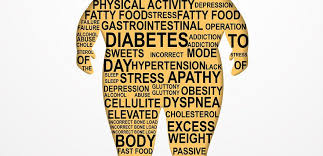Obesity.
It’s a scary word. It’s one of the most modifiable risk factors for many chronic diseases and lifestyle causes of death.
With obesity being defined by the National Institute of Health as having a Body Mass Index (BMI) 30 or over; surprisingly more people fit into this category then what you might think.
In Australia, 1 in 3 Adults (31%) are classified as being obese.
Obesity increases your risk for high blood pressure, high cholesterol, 13 kinds of cancers, and type 2 diabetes. In addition, for every extra kilogram you are carrying; this weight is multiplied by four for the stress it places on many of your joints including your knees ankles and lower back. As such, obesity will also place you at a higher risk factor for osteoarthritis.
The good news is that obesity (and high body fat levels) is modifiable with lifestyle changes. You can fix it. It’s in your control and you have the power. You are not helpless here. But that’s also the bad news, right? Because for some people, it’s easier to take a pill than to change your relationship with food and exercise.
It’s no wonder the world is facing an Obesity crisis of epic proportion. And the obesity crisis in Australia is real. Australia is ranked number 2 (men: 28%, women: 30%) in the world for obesity: behind the US (33%) (2013 data).

What Can YOU Do About Obesity?
Diet strategies are common and readily available. The world is inundated with knowledge and strategies on how to change your diet.
Traditional dieting can set people up for failure. With the focus on restricting calories on an already nutritionally bankrupt food source.
Healthy eating changes need to be sustainable for the long term, and with an understanding of how each of the macronutrients impacts your health and weight gain.
The traditional western diet consists of a high proportion of refined carbohydrates (i.e. bread and sugar) and saturated fats. You only need to visit your local café to assess the reliance we have on these two macro nutrients.
Diets which restrict entire food groups or are restrictive can be difficult to stick to for the long term and so individuals can get into a cycle of blaming themselves every time they fail.
One symptom of following a highly restricted intake of protein and fat low diet is can impact your resting (or basal) metabolic rate (BMR). The traditional western diets high in carbohydrates and saturated fats can result in excessive body fat and in a lowering of your lean muscle and your BMR.
As your BMR goes down, so too does the energy you expend at rest. A low BMR further contributes to the problem of obesity and excessive body fat.
(Further reading; Does Obesity contribute to muscle loss)

Exercise to Reduce Obesity
Exercise including strength training is a key factor in raising your BMR and reducing body fat. Muscle is more metabolically active than fat, so the higher amount of lean muscle you have on your body, the higher your BMR.
Therefore, exercise is an important lifestyle strategy for losing body fat and then maintaining a healthy body weight.
Learning about your relationship with food, exercise, and with your body (physically and psychologically) is vital to your success with losing excess body fat.
Sugar and processed carbohydrates are highly addictive and provide a short term ‘hit’ of energy. With this ‘hit’ of energy comes an activation of your limbic system, the emotional part of your brain.
While all food can do this to a certain extent (there’s connections between taste and smell and your limbic brain), what is more significant is that sugar, salt, and fat have the capacity to create a much stronger reaction.
It’s important for you to consider your social and psychological drivers of unhealthy eating.
Do you reach for the chocolate when you have had a bad day? Do you eat out a lot or have takeaway?
You need to develop strategies for these triggers, so you don’t derail your health for too long.
If you do deviate from your ideal nutritional intake; return the next day to your healthy eating plan.
Our Exercise Physiology and Personal Training team at Inspire Fitness would very happy to help you on your weight loss journey and improve your diet and exercise.
